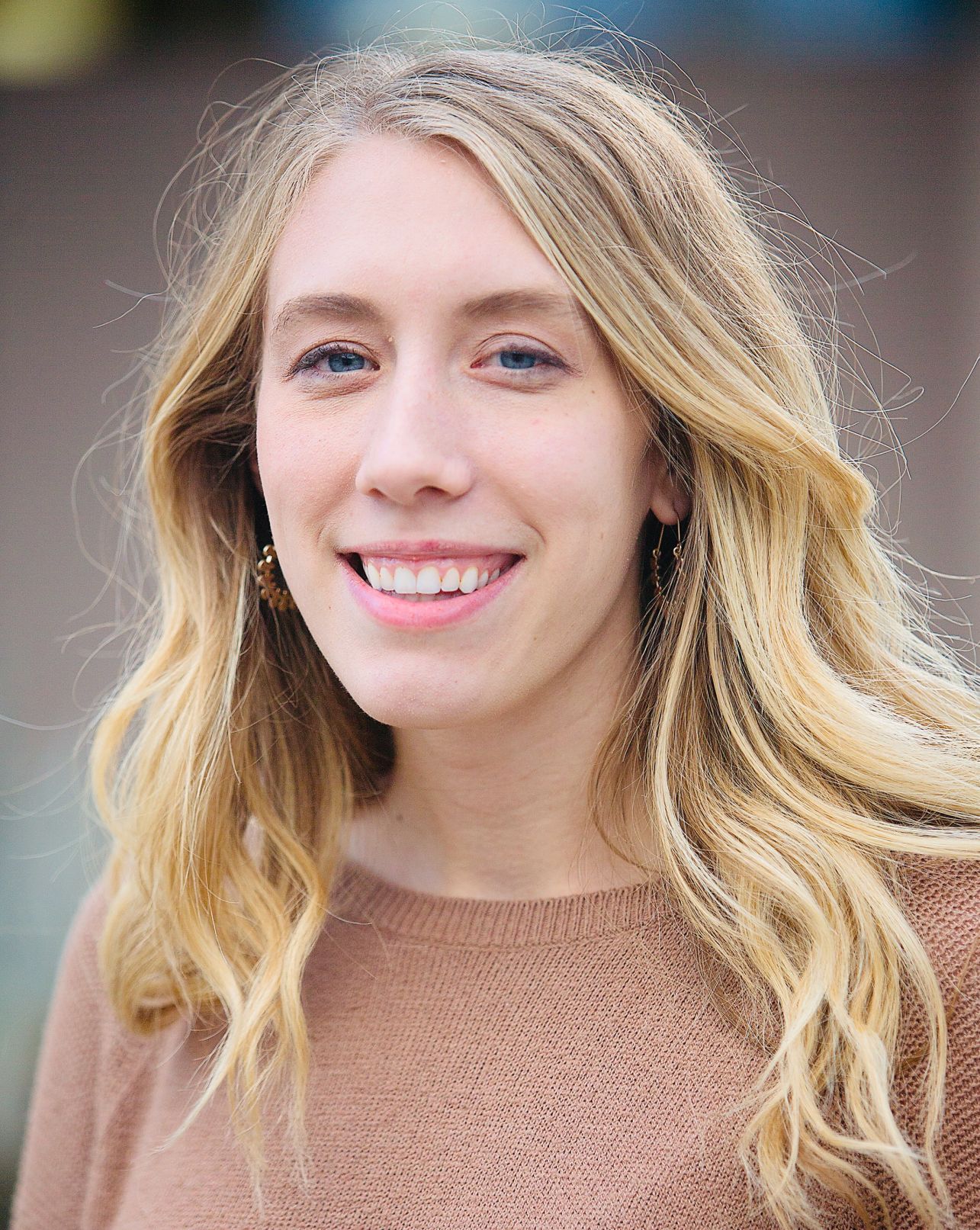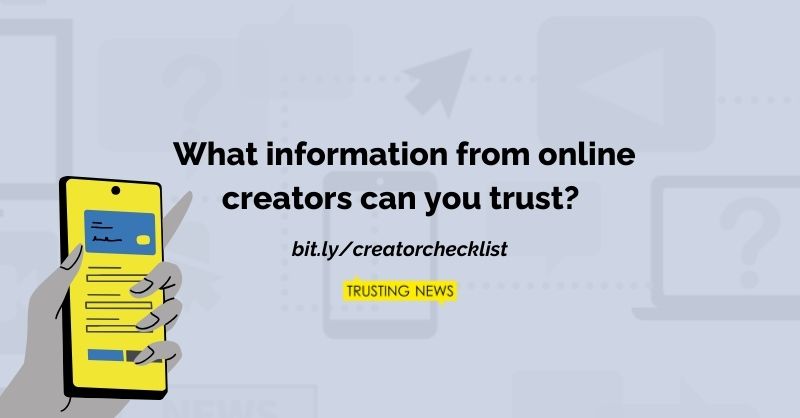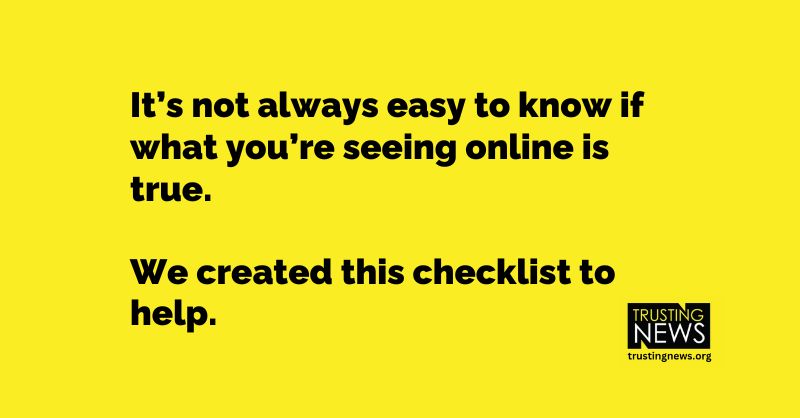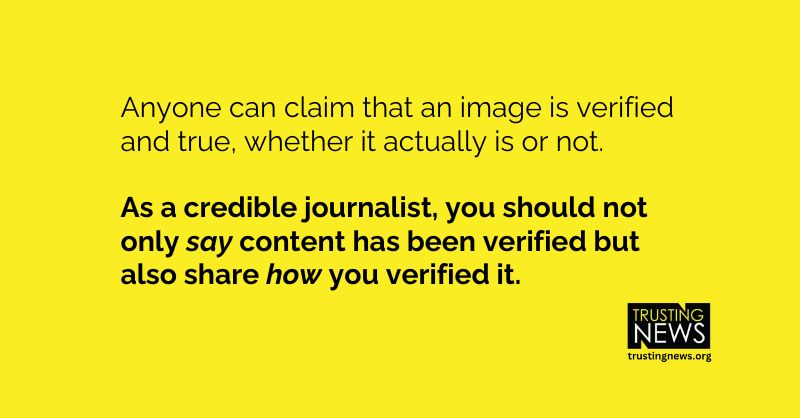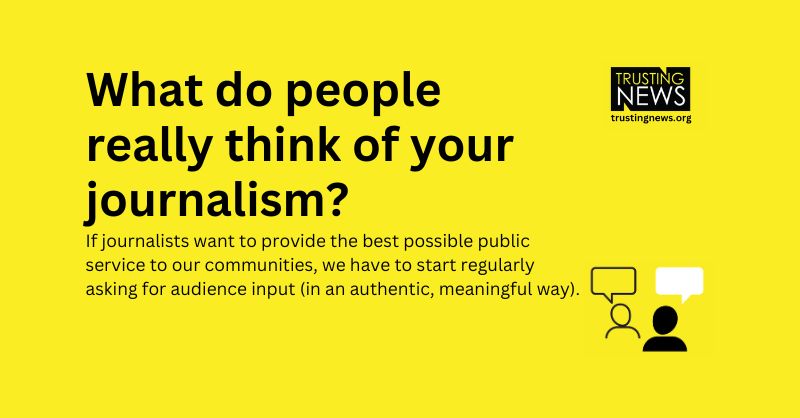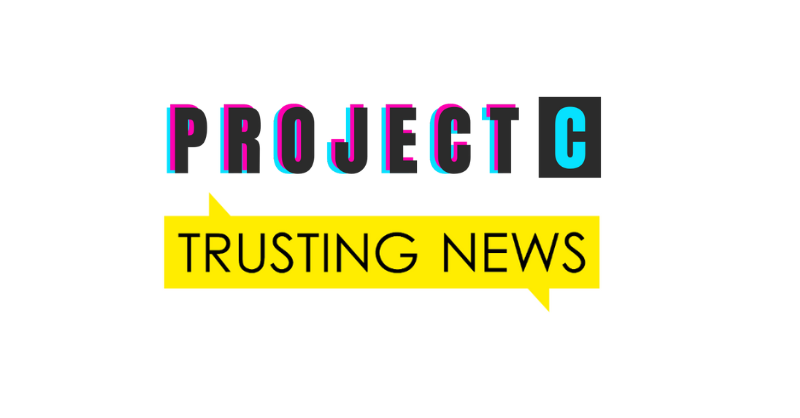
Project C and Trusting News collaboratively surveyed journalists and creators to ask: What ethical standards should be in place for content creators?
What we learned asking about ethical standards for news content creators
Many people, especially younger audiences, are increasingly turning away from traditional news sources and toward individuals and online personalities to learn about the world around them.
With news avoidance on the rise and trust in media declining, news content creators have become a fast-growing news source, especially for Gen Z and Gen Alpha audiences. A creator journalist combines elements of journalism with content creation techniques to produce news, stories or informational content for digital platforms. Unlike traditional journalists who typically work for established news organizations, creator journalists often operate independently or as part of alternative media outlets, utilizing platforms like social media, YouTube, podcasts, newsletters and blogs to disseminate their work.
The rise of independent creator journalists on social and video platforms, along with the exploding newsletter space, is proof positive of a shift in news consumption — but one that brings its own challenges and questions.
As we’ve asked before, where does journalism end and pure content creation begin?
While there’s a lot of fantastic, responsible news being shared by creators, like Bisan Owda who was honored with both a Peabody and an Emmy this year for her first-person reports from Gaza, it’s a complicated world to navigate. How do consumers know what’s credible and ethical? What conventions of more traditional news gathering should apply, and how are these new environments completely different?
At Trusting News, we ground our work in empathy for the experience of consuming the news. So if more people are turning to creators for news, we want to help them navigate their information landscape. With that in mind, we worked alongside Project C’s Liz Kelly Nelson to survey traditional and non-traditional journalists around some of these key questions. And we’re looking for ways we can be helpful on this complex topic.
Our survey was designed to guide thinking around developing norms for creator journalism that both normalize this growing cohort and give consumers and funders a way to recognize trustworthy information.
Survey results
Nelson surveyed a group of 60 people. It was a combination of traditional journalists, traditional journalists looking to shift into independent content creation and individuals already working as solo news content creators.
In the survey responses, there is a notable agreement on the need for a shared standard for responsible, fact-based independent creator journalism. However, some responses indicated the need for more research, programming and training in this area.
Highlights from the results results:
- 88% of those surveyed agreed there should be a shared standard against which we measure responsible, fact-based independent creator journalism.
- Survey takers were most concerned about:
- How work is identified as fact-based and fact-checked.
- Defining a clear difference between creator journalism and creator/influencer content.
- Distinguishing news/informational content vs. opinion.
- Transparency about advertising and funding policies.
- 66% said they try to post clear information about their processes in their work.
- 94% said they would be interested in hearing about available training or programming to support responsible, ethical content creation.
The results, although preliminary, indicate there’s a hunger among both journalists working at traditional outlets and individual content creators for more conversation, research and training around what ethical standards and best practices for content creators could look like.
Looking ahead: What’s next for this work?
This survey is part of the beginning stages of our planned collaborative work in this area, and we’re excited to continue deepening our knowledge and best practices for both the news industry and individual content creator journalists.
Specifically, we’ll continue to examine:
- How to standardize and help creator journalists have access to best practices around ethics, transparency and aggregation — and use those standards to build trust, reach and engagement with audiences.
- How large platforms, tech and media companies can work alongside creators and journalists and reward those who are willing to be transparent about their ethical standards.
- How newsrooms can embrace this new type of individual-branded journalism within their news organizations to better engage people who tune out of the news and feel left out of civic life more broadly.
If you’re interested in funding this work, or are a journalist or newsroom interested in plugging in with this work, reach out to Trusting News at info@trustingnews.org or Project C at liz@projectc.biz.
This project is a partnership between Project C and Trusting News.
At Project C, Liz Kelly Nelson helps media companies, newsrooms and journalists consider the evolution of our field and how we can ensure equitable access to news and information for all. Subscribe to the Project C newsletter for more information and to keep up with the latest news about creator journalism.
At Trusting News, we learn how people decide what news to trust and turn that knowledge into actionable strategies for journalists. We train and empower journalists to take responsibility for demonstrating credibility and actively earning trust through transparency and engagement. Learn more about our work, vision and team. Subscribe to our Trust Tips newsletter. Follow us on Twitter and LinkedIn.
